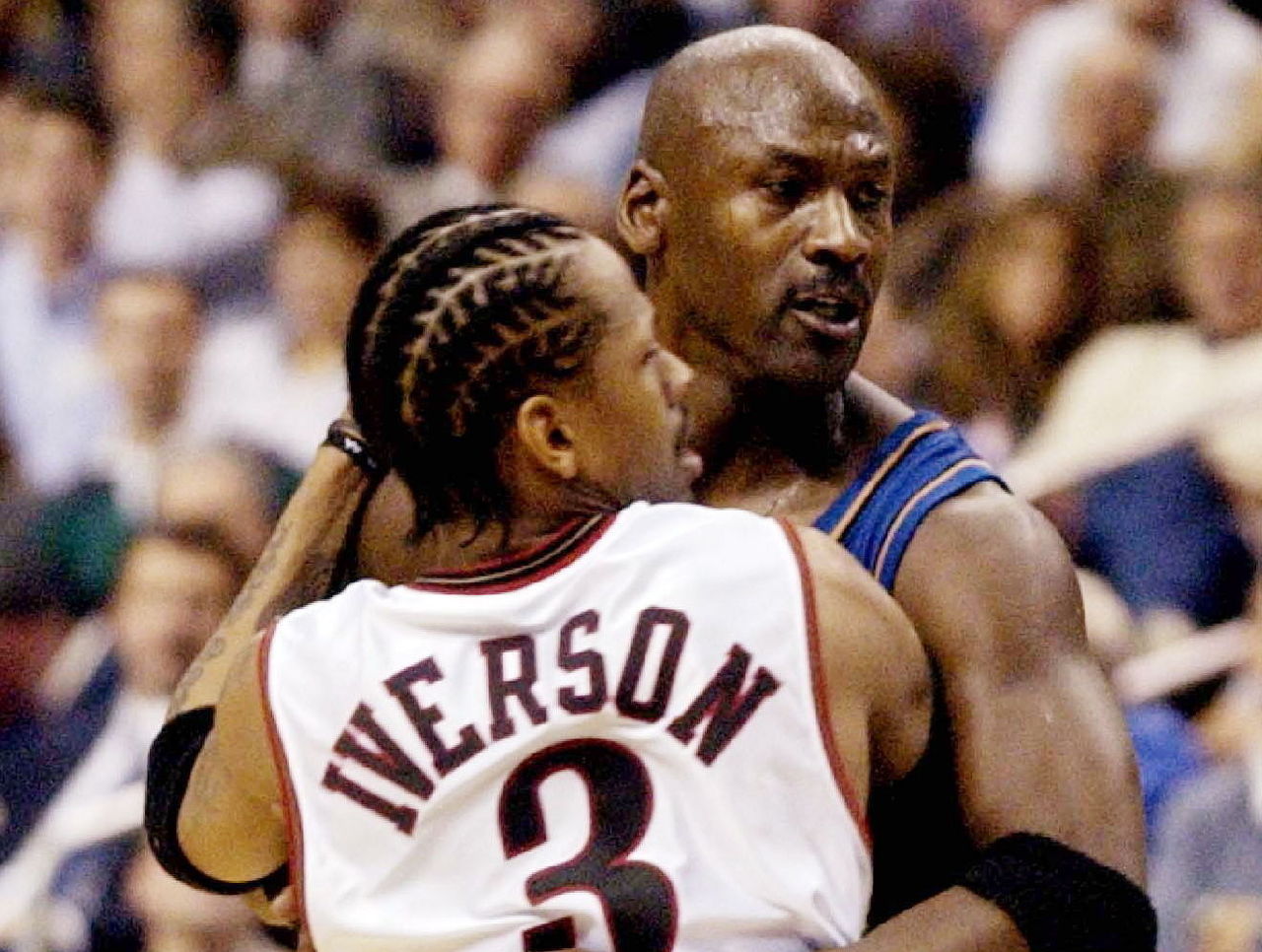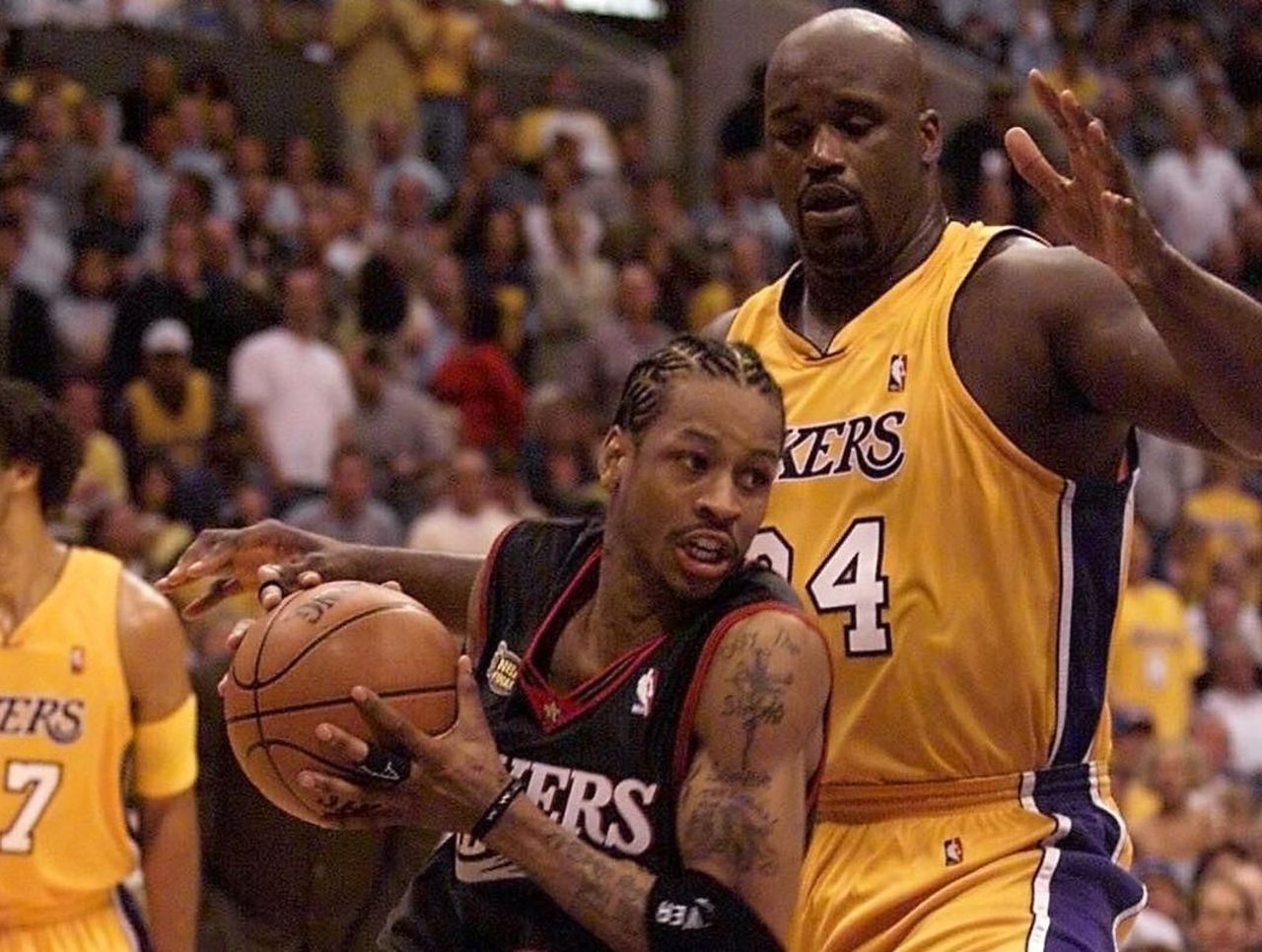How Allen Iverson changed the game
Above all else, Allen Iverson was nothing but real.
Iverson's roller-coaster career had thrilling highs and harrowing lows, and while it's not clear whether he's a tragic figure or a cultural icon, one title attached to Iverson won't ever change.
The Answer was named a first-ballot inductee to the 2016 Hall of Fame class on Monday, and his enduring legacy continues to impact the league.
From Stephen Curry to Kevin Durant, Iverson redefined what it meant to be a star in the NBA.

Iverson was a high school sensation, a collegiate legend, and immediately made his mark in the NBA by taking home Rookie of the Year honors, but he didn't immediately inherit the game.
In the '90s, the league belonged to Michael Jordan, and the NBA thrived because Jordan was perfect as its face. Just a decade earlier, magnanimous stars like Magic Johnson existed in relative obscurity. Save for those in the arena, people watched Johnson's famous skyhook on tape delay.
The clean-cut, handsome, witty Jordan changed all that, becoming the most popular figure in sports, and his stature lifted the NBA. It wasn't just fans who wanted to be "Like Mike" - players emulated his game while teams tried to find stars in his image.
While that trend still continues, Iverson's emergence represented a divergence. Here was a 170-pound, 6-foot speed demon with cornrows and a waterfall of chains flowing down from his neck, covered with tattoos and exuding the bravado of someone 10-feet tall.
And though he appeared to be the antithesis of Jordan, Iverson was just as marketable, because his greatness was undeniable.
LeBron James is 6'9, 275lb and covered in tattoos, yet he could be a pitchman for any product in America. That is Allen Iverson's legacy.
— Myles Brown (@mdotbrown) August 21, 2013
Iverson stayed true to himself - in the process, making headlines for the wrong reasons and helping to inspire David Stern's contentious dress code - and his rebellious nature redefined what it meant to be a superstar in the NBA.
Everyone remembers the crossover, but Jordan and Iverson will forever be linked for their legacies beyond the court.

As for his legacy on the court, Iverson was the daring David who stood tall in a league of Goliaths.
Nothing typified that dynamic more than the 2001 NBA Finals, when Iverson went toe-to-toe with the peak incarnation of Kobe Bryant and Shaquille O'Neal's powerhouse. The Lakers easily took the series for their second of three titles, but the enduring moment from that series belonged to Iverson.
Nobody gave the Sixers a chance, even though Iverson was the MVP that season. The team's second-leading scorer behind him, Theo Ratliff, didn't even play in the playoffs. The Lakers, meanwhile, had gone 11-0 to sweep through the Western Conference.
Yet it was the Sixers who drew first blood in Game 1. After falling down by three late in the fourth, Iverson drained two free throws and hit a three to put Philadelphia up two, then consigned Tyronn Lue to a lifetime of infamy while clinching the win at the Staples Center.
Iverson finished with 48 points that night, but couldn't stop the unstoppable; Shaq and Kobe would go on to lead the Lakers to a 4-1 series win. However, Iverson's game lives on as the single blemish on an otherwise perfect playoff run for Los Angeles.
Iverson's teams never quite managed to repeat the success they had in 2001. He was a volume scorer, but he was ultimately inefficient, and building a cohesive team around him proved difficult.
But Iverson did inspire a generation of guards that would eventually inherit the league. You can trace a straight line from Iverson to someone like Stephen Curry, who's carrying the torch for little guys.
"It was inspiring just to know that you can defy a lot of odds and be yourself while you're out there on the court playing and changing the game," Curry said of Iverson in a recent interview.